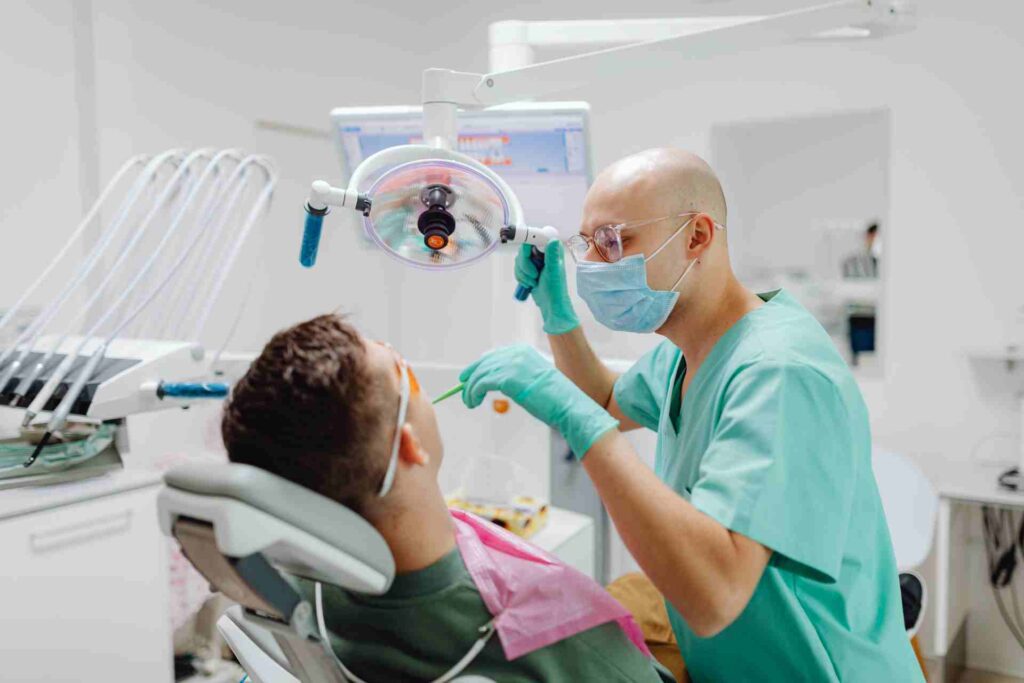Dental health is a crucial aspect of our overall well-being, yet many of us will encounter the discomfort of a bad tooth at some point in our lives. Whether it’s a sudden sharp pain while enjoying your favorite ice cream, or a constant ache that keeps you up at night, the experience is far from pleasant. Recognizing the signs and understanding the steps to take can make a significant difference in managing the situation.
Below, we’ll delve into what constitutes a bad tooth, the immediate actions you can take, and when it’s time to seek professional help—ensuring your smile remains healthy and bright.
Understanding What Constitutes a “Bad Tooth”
A “bad tooth” refers to a range of dental problems, each with its unique implications for your oral health. Commonly, it encompasses issues like cavities, tooth decay, and infections which can stem from neglect, poor dental hygiene, or dietary choices. Key indicators of a bad tooth include persistent pain or discomfort, increased sensitivity to hot or cold foods, visible holes or pits in your teeth, and in more severe cases, swelling around the tooth or jaw. Sometimes, bad breath or an unpleasant taste in your mouth can also signal underlying dental problems. Recognizing these symptoms early on is crucial, as they are not just discomforts but alarms signaling that your teeth need attention.
Immediate Steps to Take at Home
When facing the discomfort of a bad tooth, there are several immediate steps you can take at home for temporary relief. Start with a saltwater rinse, which can help reduce swelling and alleviate pain by removing bacteria from the mouth. If you’re experiencing pain, over-the-counter pain relievers like ibuprofen can offer short-term relief. Applying a cold compress externally to the cheek can also help reduce swelling and numb the discomfort.

While these remedies can provide temporary ease, they are not long-term solutions. These initial home remedies should be followed up with a visit to the dentist for a proper diagnosis and treatment.
When to See a Dentist
Identifying the optimal moment to consult a dentist is a critical decision when you’re facing dental issues, particularly with a bad tooth. Persistent, severe, or escalating pain is a definitive sign that you need a professional assessment. Immediate dental attention becomes even more imperative if you observe symptoms of an abscess, such as swelling, fever, or a gum bump resembling a pimple, signaling a possible infection. Equally urgent is the need for dental care following physical trauma to a tooth, which might manifest as chips, cracks, or a sensation of looseness or misalignment.

Seeking timely dental care is not just about alleviating immediate discomfort; it’s about averting the progression of the problem. A dentist can diagnose the underlying issue, propose an effective treatment plan, and safeguard your long-term oral health. Prompt intervention by a dental professional not only addresses the current issue but also contributes to the prevention of future dental problems—ensuring that your oral health remains in optimal condition.
Professional Dental Treatments for a Bad Tooth
When you consult with your dentist, they’ll assess the state of your tooth and propose appropriate treatments. For cavities, the standard procedure is dental fillings, which involve eradicating the decay and filling the affected area with a durable material to restore the tooth’s integrity. In more advanced cases, where the decay reaches the tooth’s nerve, a root canal may be necessary. This procedure entails removing the infected pulp inside the tooth, followed by sealing it to prevent further damage. In situations where the tooth has sustained extensive damage or decay, the dentist might suggest crowns or caps. These are custom-fitted over the tooth to bring back its natural shape and ensure proper functionality. In instances where the tooth is irreparable, extraction becomes inevitable. This step might lead to considering replacement options, such as dental implants or bridges, which offer a functional and aesthetic solution to missing teeth.

Each of these treatments is designed not just to relieve pain but also to rehabilitate your dental health, ensuring long-term functionality and aesthetic appeal. Moreover, these procedures can prevent further oral health issues, safeguarding your overall well-being.
Prevention Strategies
Preventing bad teeth is far more effective than treating them. The key to this is maintaining excellent oral hygiene. Regular brushing twice a day, flossing daily, and using mouthwash can significantly reduce the risk of cavities and decay. Regular dental check-ups, typically every six months, are essential for early detection and treatment of potential issues. Additionally, diet plays a crucial role in dental health. Reducing sugar intake, avoiding acidic foods and drinks, and incorporating teeth-friendly foods like dairy products, leafy greens, and fibrous fruits and vegetables can strengthen teeth and prevent decay. Remember, good oral habits not only protect your teeth but also contribute to your overall health.
Taking Charge of Your Dental Health
Tackling a bad tooth requires a combination of immediate home remedies, timely professional intervention, and ongoing preventive measures. Understanding the signs and symptoms of dental issues, and knowing when to seek professional help, is key to maintaining good oral health. Treatments such as fillings, root canals, crowns, or extractions, while varied, are all geared towards alleviating pain and restoring dental functionality. Beyond these interventions, the real power lies in prevention—regular brushing, flossing, reducing sugar intake, and routine dental check-ups play a pivotal role in keeping dental problems at bay.

Remember, your oral health is a window to your overall well-being, and taking proactive steps to care for your teeth not only preserves your smile but also contributes to your general health. So, prioritize your dental care, consult with your dentist regularly, and embrace a lifestyle that supports strong and healthy teeth.





















